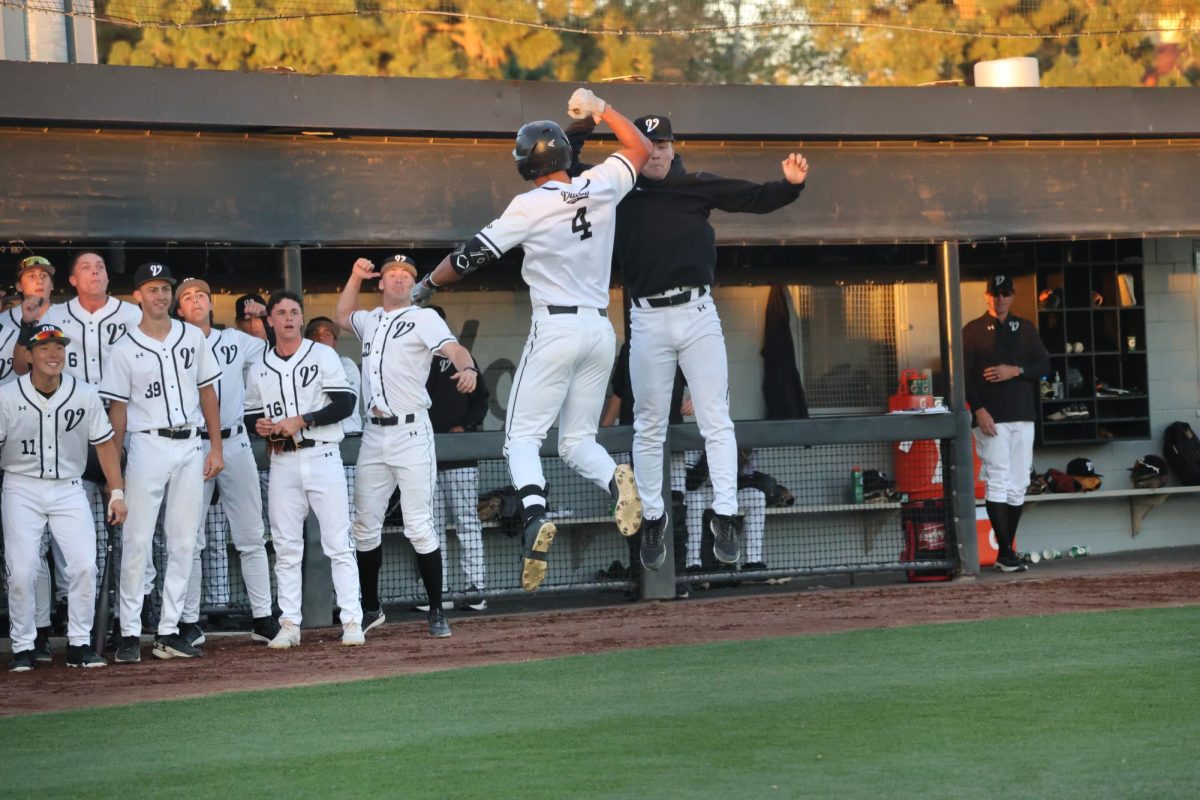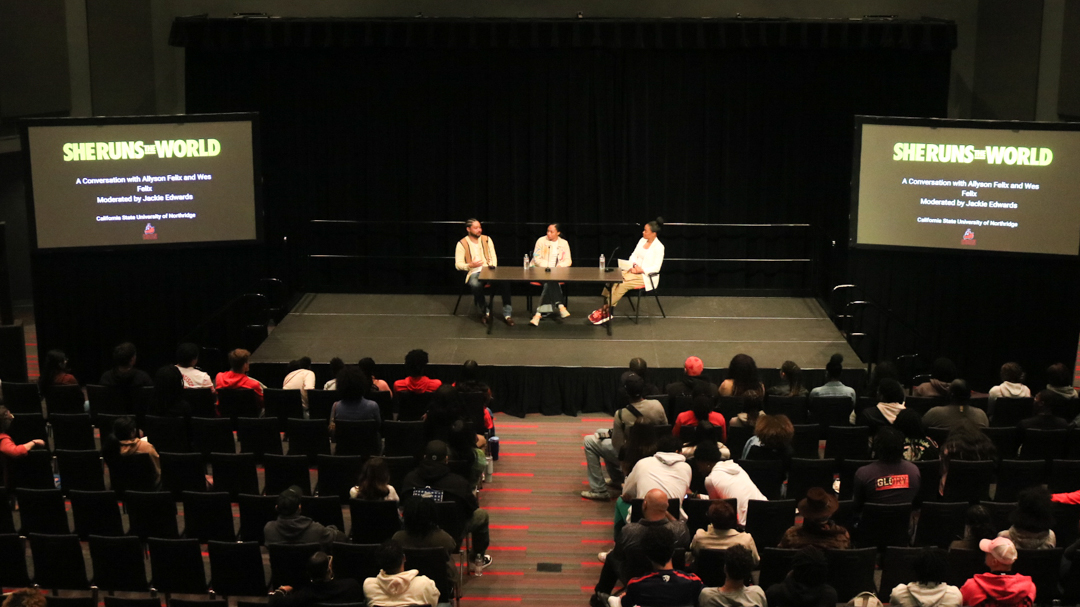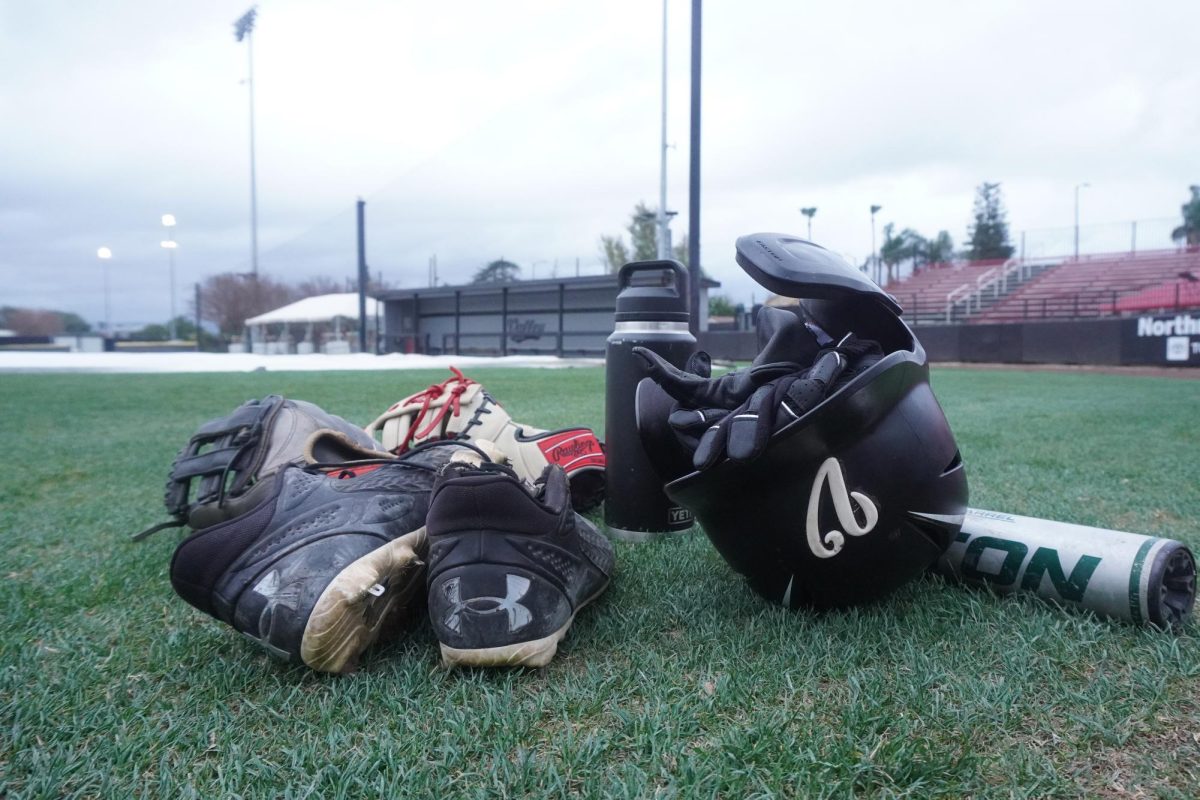By: Roy Azoulay
>>>>>CORRECTION: At the time this was published, Lev-Ari ranks tied for ninth in the nation in goals scored, and CSUN is ranked No. 20 in the nation.
Transitioning to a foreign society can be a difficult period in any person’s life including one of a college student. Likewise, it can be extremely difficult for a soldier coming off active duty to assimilate back to civilian life. When transitioning from a state of constant war into the relatively mellow life of Southern California, it’s not all that bad when you have with you two fellow countrymen.
Meet Sagi Lev-Ari, Yuval Barak, and Yarden Azulay, all of whom served in the Israeli Defense Force and are current members of the CSUN men’s soccer team.
“Before we came here, none of us knew each other, but now we’re like brothers,” Lev-Ari, 23, said.
The sophomore business major grew up in Kiryat Ata, a city located in the Haifa District of Northern Israel. Lev-Ari has been playing soccer for almost all his life and has been playing at a high level since the age of 12, when he began playing for Maccabi Haifa F.C.’s youth squad.
“First of all, I have no family here, so that’s already a big change and makes it difficult, but I enjoy it here,” Lev-Ari said. “In Israel, soccer was my main focus, but here I have to focus on my studies also…In Israel, it’s a lot more competitive and people are at each other’s throats more often. Here it’s friendlier, and I hope to be successful here.”
Lev-Ari is currently tied for fourth in scoring in the nation with 10 goals through 14 games, good enough for 84th in the nation and 7th in the Big West.
The Matadors’ team captain, Yuval Barak, 25, was born and raised in Tel-Aviv and has been playing soccer since the age of five.
“Life here is serenity; it’s nirvana,” Barak, a senior kinesiology major, said. “In Israel, there are constant pressures on your mind…In (America), it’s calm and peaceful. I only need to focus on my education and soccer. I don’t have much stress on my mind here. Through the blessings of God, this is a dream. I enjoy every moment here and say thanks that I am here.”
Azulay, 24, was born in Jerusalem but grew up in Bikat Hayarden. The sophomore business major has also been playing soccer for most of his life and played for Beitar Jerusalem F.C.’s youth team. His father was a professional soccer player and played for Beitar Jerusalem F.C. as well.
Yarden and Lev-Ari are familiar with each other as competitors when they played against one another on their youth squads back in Israel.
“There’s a big difference between here and Israel,” Azulay said. “There’s a difference in the attitudes of the people, a difference in stressors. Here they want to help you sharpen up, help you advance. More or less it’s calmer here, and more focused…It’s still hard to cope with not seeing your family and friends, but in regards to the lifestyle here, I love it.”
In Israel, every male citizen is obligated to serve for at least three years after you graduate high-school and every female citizen is obligated to serve for two.
Serving in the military and participating in active duty will change anyone’s life if you are fortunate enough to come out alive.
“It’s true, it’s true. The military will change your perspective on life and your mentality towards it,” Azulay, who served in the Israeli Air Force, said. “When I came here, you see it, as you hang out with kids here my age, you feel the difference in maturity between us.”
Having two friends with you who are of similar background and share a similar mindset, can make the transition into a new culture a lot smoother.
“Of course the military will change your perspective,” Lev-Ari, who served as an infantry soldier, said. “Me, Yuval, and Yarden, for example, are a lot different from all the kids here in regards to our mentality, maturity, and attitudes.”
Barak served for, Modeiin, the military Intelligence division, and arrived in the U.S. only a week after he was released.
“Even if you don’t serve in the army in Israel, just growing up there changes your mentality,” Barak said. “I don’t know how to explain it, it’s different than here, it’s a mentality that at any moment someone can come and take your country from you.”
All three of them agreed that their experience in the military also changed how they approach the game of soccer and allows them to feel more comfortable in the leadership role.
“Everything in Israel is like you’re constantly at war, everything is life or death. In soccer you’re disciplined to treat a loss like a tragedy,” Barak said. “You have to give it your all every time, and give your all to win.”
Aside from the military aspect of growing up in Israel, the game of soccer is interpreted differently and as a result, is played differently and the difference in play between Israeli and American players is no exception.
“Here the game is a lot quicker, more physical and the whistle is blown less. The fouls that I would draw in Israel are not given to me here. The players here are a lot faster and stronger and less technical as a result.” said Lev-Ari.
According to Lev-Ari, if more focus were given to the sport of soccer, with all the athletes the U.S. produces, America could be the top country in the world and could win a World Cup.
The Matadors (10-4-0) have come off of two big wins against No.4 UC Santa Barbara and UC Riverside, in which Barak had two assists, and earned CSUN the No. 21 ranking in the nation.
The success of Lev-Ari and his extraordinary goal-scoring ability, along with the leadership of Barak, has allowed the Matadors to take the top spot in the Big West conference with a 4-1 conference record. This being Lev-Ari’s first season with the Matadors, CSUN has much more to look forward to in the future.





